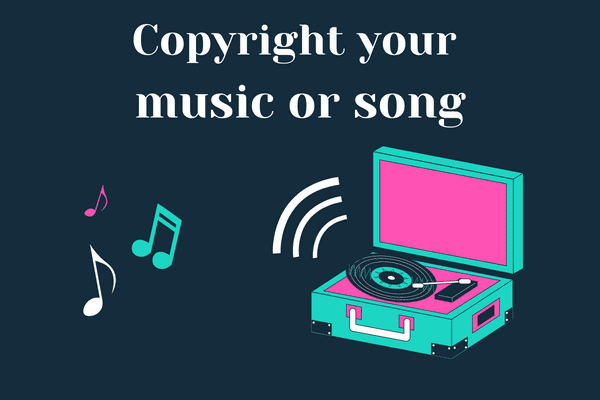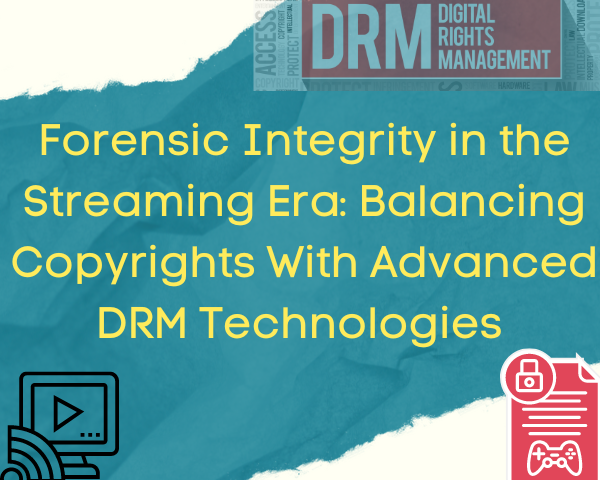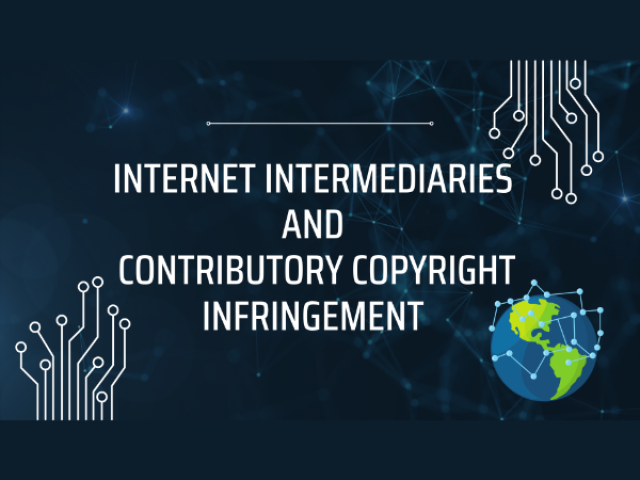Music and Copyright:
“At his best, man is the noblest in creation; separated from law and justice, he is the worst.”
Exclusive legal rights and legal ownership can be granted to recordings and music. Music Copyright includes the exclusive right to distribute and reproduce the work and the license right to enable the copyright owner to obtain royalties.
Musical Work Definition as per the Copyright Act:
The Copyrights Act 1957 defines musical work under Section 2 (p) as “musical work,” which means a work consisting of music and includes any graphical notation of such work but does not include any words or action intended to be sung, spoken, or performed with music.
A composer is a person who composes music. Music composition is not an easy job; it requires talent, time, and effort. Therefore, filing for Copyright is crucial to ensure that the composer’s work is not mistreated. A question may now arise regarding the rights of the first composer to song remixing, and we shall also examine the same in the article.
Why Copyright your music:
The creation of musical notes by yourself is an art that you achieved and which you made. When you create your music, the copyright law automatically protects it. But have you imagined what will happen if someone copies your music without your knowledge and claim rights over your music? You must note that to get legal protection for your music, you should place a copyright notice to the Registrar of Copyright. The main reason for doing this is that registration is a prerequisite to bringing a lawsuit for copyright infringement.
Advantages:
Copyright registration safeguards a creator’s rights over his creations, protecting and rewarding creativity. Creativity being the keystone of progress, no civilized society can afford to ignore the essential requirement of encouraging the same. The economic and social development of a community is dependent on creativity. The protection provided by Copyright to the efforts of musicians induces them to create more and motivates others to develop.
The interplay between Copyright and Remix:
It is important to note that the Copyright Act does not define the word ‘Remix.’ The Copyrights Act under Section 51 states what amounts to infringement within the ambit of the Act. However, within the Act, a person who copies musical work, artistic work, or any other work by giving prior notice of his intention and pays advance royalty to the owner of the original work is not considered an infringement.
Similarly, in the case of remixing songs, if a person pays advance royalty to the composer, then it shall not be considered an infringement. However, it must be noted that new work should not be marketed as it might mislead the public about the artist’s identity. It must be said that the new work or remix must not be made until the expiration of two years after the end of the year in which the original work was done. The copyrighting of remixing is as crucial as protecting the original music work.
Rights of the artists:
Section 14 (a) of the Copyrights Act 1957 grants certain rights to the artists. The same are elucidated below:
1. Right to reproduce the work.
2. The artist has the right to make translations and adaptations of the original work.
3. The right to issue copies to the public.
4. The right to communicate with the public.
5. The right to include the work in any cinematograph film.
6. The right to make any adaptation of the work.
The Rights of individuals who create or own a sound are further illustrated under Section 14 (e) of the Copyrights Act, 1957.
1. The right to create any sound recording which encapsulates the original sound.
2. The right is to sell any sound recording copy or to provide the sound for hire or sale.
3. The right to communicate the work to the public.
Process – Copyright for a song:
Copyright protection is an easy step ahead under the Copyright Act 1957. It is essential to put music or song in some tangible form; it could be on tape, on a CD, on a floppy disk, or written on a piece of sheet music. It is also important to note that the application must be filed in Form IV.
An application should be made for one work only and in triplicate, accompanied by specified fees.
The person applying for registration should give notice of his application to every person who claims or has any interest in the subject matter of the Copyright applied.
If the Registrar of Copyrights receives no objection to such registration within thirty days of the receipt of the application, and if the Registrar is satisfied with the correctness of the particulars given in the application, he enters such details in the Register of Copyrights.
If the Registrar of Copyrights receives any objections or is not satisfied with the correctness of the particulars given in the application, he may, after holding inquiry enter such details of the work in the Register of Copyrights as he considers proper.
Then the Registrar of Copyrights sends a copy of the entries made in the Register of Copyrights to the parties concerned wherever practicable.
Ownership in a song:
Under the Copyrights Act, a song is not treated as a single entity but as a different component. The owner of each part can obtain a copyright for his role in the song. If the song is written, composed, and sung by one person, he can claim Copyright over the whole song.
1. Lyricist
For instance, under the Copyrights Act, Section 2(d) (i) states that in a literary work, the person who writes is the author of that work. The person who writes the lyrics of a song is the lyricist. The lyricist is the song’s author, and it comes under literary work in the Act. Thus, he can get the Copyright for the song’s lyrics as the author of it.
2. Composer
Similarly, Section 2(d) (ii) of the Act states that concerning a musical work, the composer is the author of the musical work. According to Section 2(p) of the Act, musical work is work that has music and includes graphical notation of such work but does not include any words or any action intended to be sung, spoken, or performed with the music. Thus, musical work is giving music to the lyrics of the song.
The composer of a song is the person who provides music to a song and thus is the author of the music in a song. He can obtain a copyright for the background music in a song.
3. Performer
The definition of the performer is given under Section 2 (qq). Section 2 (qq) of the Act defines a performer, including a song singer. When the singer performs a song, he has the performer’s rights concerning his performance. He has the right to make a sound recording of his performance and reproduce it or issue copies of it on an electronic medium. Further, he has the right to sell his copies or recordings. Additionally, he has the right to protect his compositions or recording against infringement. But his performer’s right will not affect the rights of the author, i.e., the lyricist and composer of the song.
Section 2(d)(v) of the Act states that the person who does the sound recording is the author in respect of that sound recording.
4. Producer
Section 2(uu) defines a producer. A Producer takes the initiative and responsibility for doing the work. Since the producer of a movie or album undertakes the recording of a song and broadcasts it in a film or album, he is the author of the song’s recording, and thus, he can get the Copyright for his recording of the song.
Duration of Copyright and representation
Protection of musical work can be counted from the date of its creation and 60 years calculated from the year following the author’s death. When your musical work is registered in the Register of Copyrights, you can put phrases like “All Rights Reserved” or “Copyright 2016” or perhaps the copyright symbol© and a date at the bottom, which will mean and bring legal action against the person who infringes it. Copyright ensures certain minimum safeguards of a creator’s rights over his creations, thereby protecting and rewarding creativity.
Therefore, it can be stated that registering a Copyright will protect the music’s authenticity and prevent music theft. Consequently, an individual must file for his rights as soon as possible!




